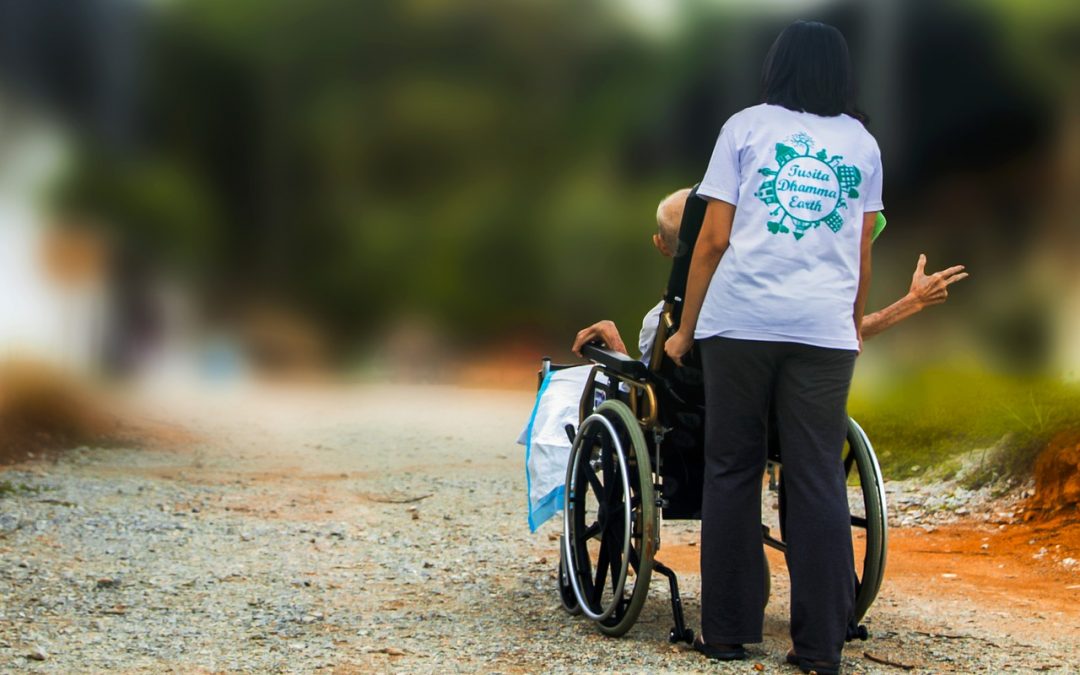By now, everyone is probably pretty tired of hearing about “new” guidelines on COVID-19. One thing we can probably all agree on is how confusing, frustrating and stressful the last year has been, right? We all want to return to our routines and get back to living and interacting in our communities.
Adult Day Services Centers, which provide services to adults with disabilities, have been given new guidelines by the Centers for Disease Control and Prevention to assist them during the ongoing COVID-19 pandemic.
Why is this so important? Because individuals with disabilities may be at even greater risk when it comes to COVID-19 – and now is not the time to overlook critical precautions, without which we put ourselves and those we serve at risk. According to the CDC:
“All people seem to be at higher risk of severe illness from COVID-19 if they have serious underlying chronic medical conditions like chronic lung disease, a serious heart condition, or a weakened immune system. Adults with disabilities are three times more likely than adults without disabilities to have heart disease, stroke, diabetes, or cancer than adults without disabilities.”
These guidelines are meant to supplement – not replace – current federal and local rules and regulations for day centers.
Knowing that those with disabilities are at higher risk for COVID-19, the guidance was issued to help administrators and staff protect themselves and those they serve.
General Guidelines from the CDC Include:
- COVID-19 vaccination
- Handwashing
- Mask wearing
- Physical distancing when possible
Guidance also instructs limiting nonessential visitors to day centers and limiting services where individuals must be within six feet of each other. Plans should be in place so that any individual who displays symptoms of COVID-19 can be isolated from others and transported safely for medical care.
How to Protect Yourself & Others in the Workplace
As we know, vaccination is important in preventing COVID-19, but:
Even if vaccinated, the CDC recommends that masks, social distancing, and other precautions still be continued until more information is documented regarding the disease.
Important tips on wearing masks:
- A mask should cover the mouth and nose
- Those with a disability who cannot wear a mask safely should not wear one
- Even with a mask, continue to maintain 6 feet between oneself and others
When washing hands:
- Wash with soap and water for at least 20 seconds. Especially after being in a public area or after coughing, sneezing, or blowing your nose
- Wherever possible, avoid touching commonly used surfaces with your hands, such as door handles, elevator buttons, handrails, etc.
- Try not to touch your mouth, nose, and eyes with unwashed hands
When using transportation:
- If possible, avoid group transportation
- Follow all general guidelines (masks, physical distancing, good hygiene) if using group transportation
- Stay 6 feet from other passengers and the driver, if possible
- Verify your arrival and departure times so that waiting in a group is avoided or minimized
Bringing Awareness to Prevention Strategies Throughout the Facility
Visible reminders displayed throughout day centers are helpful to remind – and reinforce – steps to prevent COVID-19.
Such helpful visual reminders include:
- Tape markings on floors to help people maintain proper distancing
- To establish a safe flow of traffic, place directional arrows on floors
- Place signs noting prevention strategies in plain language and alternative formats, i.e., Braille
- If possible, specify doors for entry only and those for exit only
- Provide training videos for staff and guidance letters for participants to take home that specify behaviors that prevent the spread of COVID-19
Employee health screenings should be conducted with respect to privacy, so as to avoid stigma and discrimination in the workplace. Virtual health screenings can be done for employees and participants before arriving at the center, in accordance with state and local guidelines.
It is important to keep in mind that symptoms and temperature screenings do not identify those who have COVID-19 but are asymptomatic or pre-symptomatic (not showing symptoms but will later). That is why following CDC general guidelines (washing hands, physical distancing, mask wearing and cleaning) should always be utilized to reduce and avoid transmission.
What if You’ve Been Exposed to COVID-19?
The CDC advises that if you have close contact with a COVID-19 diagnosed person and you are:
- Fully vaccinated: you don’t need to stay away from others or get tested unless showing symptoms
- Not fully vaccinated: tell your caregiver and staff at the center and do not attend any programs until your quarantine period has ended
If you are having COVID-19 symptoms:
- Get tested
- Let your healthcare provider know and do not attend programming until your quarantine has ended
- Begin self-isolation immediately
If you become sick at your center:
- Let a staff member know right away
- Staff will take proper precautions to protect others. They will help you get home as safely as possible, according to their facility policy
The CDC offers other helpful tips and information on their website page, Participants at Adult Day services Centers and Their Caregivers. For Administrators and Staff at Adult Day Services Centers, here is a link to explore current CDC guidance.
Special Needs Companies is a one-stop-shop for the disability community that provides a vast array of legal and family services, including special needs planning, trust administration, case management, guardianship and conservatorship, and more.
Contact us to learn more about how we can assist you.

